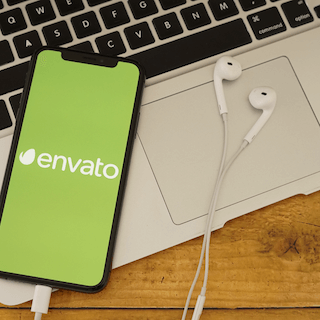It may surprise outsiders that there are numerous self-styled Australian Silicon Valley clusters across the country that are helping to drive startup formation.
As the digital revolution propels every faster owing to COVID lockdown restrictions, they have been and for the foreseeable future will be hot beds for new and exciting jobs and leading technological innovation.
The formation of startups in Australia, notably along the eastern seaboard have been on the historical rise. Capital availability grew, Australia’s universities produce high quality talent, and governments at all three levels support for young high-growth businesses and the organisations that help them grow. Once the dark shadow of COVID recedes, Australia’s reset to encourage entrepreneurial zones will no doubt have added impetus.
One credible benchmark for gauging entrepreneurialism is the Startup Genome report on Global Startup Ecosystems, produced by Startup Genome in collaboration with GEN. This publication provides an understanding of startup ecosystems and the global network of capital and connections that drives them. It also provides advanced analysis of the specific drivers of startup ecosystems, based on survey responses from 11,000 technology startups, investors and other stakeholders around the world.
Knowledge creation and federal policy changes are two key factors driving Australia’s global entrepreneurial competitiveness. An equity crowdfunding legislation allowing public companies to raise funds through crowdsourced equity came into effect last September. A national initiative will be rolled out this year that plans to focus on building digital infrastructure, developing digital business capacity, and building digital skills.
New South Wales
Sydney has around 1500 active tech startups, which in the past has mostly benefited from government incentives and gangbuster exits; and as a consequence, a new wave of growth. Meanwhile, the not-for-profit group TechSydney has been established to turn Sydney into a world class start-up ecosystem through improved local and global connectedness. Collaboration between startups and tech giants like Airbnb and Amazon will be fostered, and opportunities to pitch to investors with global reach has already inspired a number of tech startups.
Recently, Australia’s largest metropolis has been benefiting from a shift in government policies designed to attract investment and is now on the path of establishing a globally competitive framework. The government has allocated $75 million in Commonwealth tax incentives, established to boost angel funding for incubators and accelerators, and new venture capital arrangements to boost growth.
The startup ecosystem in Sydney proves its vibrancy and prospect through the likes of record-breaking Atlassian, the collaboration software maker that was not only the most successful IPO last year, but also set a record $4.4 billion valuation for an Australian technology firm. FinTech startup, Afterpay, the “buy now, pay later” online payment method, went IPO and is potentially now worth more than $100 million. And in a case of one online delivery market acquiring another, Just Eat purchased Menulog for a staggering $687 million.
Sydney’s funding rounds are impressive as well. Graphic design startup Canva has joined the ranks of Atlassian, becoming Australia’s next tech unicorn after closing a $US40 million ($A50.9 million) capital raise that officially values the company at $US1 billion, while the cloud-based platform Tyro plans to use its $100 million in new funds to accelerate its growth initiatives and new product development.
 Some key developments:
Some key developments:
- Sydney School for Entrepreneurship, a partnership between all 11 NSW universities and TAFE NSW, launched in August following a $25m cornerstone investment by the NSW government. Nick Kaye, who previously ran the Stockholm School for Entrepreneurship, returned to Australia to head the program.
- The Sydney Startup Hub was announced in July, with the NSW government set to spend $35m on the project. The building will provide 17,000m2 of space for startups, with around 2,500 desks. Several prominent Sydney startup hubs, including Stone & Chalk, Fishburners and Tank Stream Labs will relocate into one shared space above Wynyard train station. The Sydney Startup Hub is expected to open before the end of 2017.
- The Sharing Hub, Australia’s first startup accelerator for the sharing economy, launched in April. The facility provides training, mentorship and investment opportunities as well as physical working space.
- In April, the University of New South Wales unveiled a $100m deal with the Chinese Ministry of Science and Technology to build a collaborative innovation precinct on its Kensington campus. The Torch Innovation Precinct is the first such precinct outside China and will support research around energy storage, biotechnology and environmental engineering.
- York Butter Factory expanded to Sydney, opening Hoist in partnership with Mirvac. Hoist is a tech hub located at the Australian Technology Park in Redfern. Mirvac and YBF have said they plan to expand the collaboration to other sites around the country.
- TechCrunch Disrupt Battlefield debuted in Australia on November 16 in Sydney. The one-day event saw 15 local startups pitch to take part in TechCrunch Disrupt, one of the world’s leading pitch competitions, in San Francisco in 2018.
- In April, the NSW government announced it had secured the rights to host LAUNCH Startup Festival in Sydney in 2018 and 2019. It will be the first time LAUNCH has been held outside the US. LAUNCH festival San Francisco typically attracts more than 10,000 attendees and its competition alumni include Dropbox, Fitbit and Yammer.
Victoria
Melbourne is well known in Asia as a top ten liveable city and has a high standard of living but relatively high operational costs—a harsh fact that makes it challenging for many of the currently 900-1,300 local startups. This and many other reasons prompted the Prime Minister to roll out a $1.1 billion innovation package that offers tax breaks for startup investors, changes crowdfunding legislation, and introduces initiatives geared to turn Melbourne into a startup powerhouse.
The startup ecosystem features success stories such as Kogan, Envato, and Red Bubble. Social media marketing platform Tribe raised $5.35 million in venture capital during a Series A round—in less than one year after its launch.
 Connectedness is key in creating a world class start up ecosystem, first on a local, and then global level. The co-working space, York Butter factory, offers landing pads for burgeoning startups and Inspire9 runs the Angelcube program, an intensive startup accelerator program each June. Weekly meetups like Fintech Melbourne, Melbourne Silicon Beach, Innovation Bay, and Startup Victoria offer the necessary touch point for anyone interested in founding or working in startups.
Connectedness is key in creating a world class start up ecosystem, first on a local, and then global level. The co-working space, York Butter factory, offers landing pads for burgeoning startups and Inspire9 runs the Angelcube program, an intensive startup accelerator program each June. Weekly meetups like Fintech Melbourne, Melbourne Silicon Beach, Innovation Bay, and Startup Victoria offer the necessary touch point for anyone interested in founding or working in startups.
Melbourne has one of the strongest rates of Early-Stage Funding, strong Global Connectedness scores and high-quality engineering—all indicators that it could make a push into the top 20. LaunchVic works with entrepreneurs, industry, business, the community and educational institutions to strengthen Victoria’s entrepreneurial and startup ecosystem.
Some key developments:
- Intersekt, Australia’s first FinTech festival was held in Melbourne in October. The festival, which included the Collab Collide Summit, was hosted by FinTech Australia and FinTech Victoria in conjunction with FinTech company NextMoney and co-working community York Butter Factory.
- In July, Sydney-based FinTech hub Stone and Chalk announced it was expanding to Melbourne, led by FinTech Victoria founder Alan Tsen. It will be housed alongside agtech accelerator SproutX, with whom it plans to develop a new agri-fintech program.
- Victoria followed the Northern Territory, Queensland, and South Australia in implementing the national Digital Technologies Curriculum, with other states to follow by the end of 2018. The Victorian government announced it would invest $125m to create 10 ‘tech schools’ and spend $21.6m to support specialized teacher training.
- The Victorian Fintech Hub, a 4,000m2 precinct to be established in Docklands, was announced in June by the state government who will provide funding for the design and fit-out, rent and other support measures for at least three years.
- CyRise, a cybersecurity accelerator, was launched by Dimension Data and Deakin University in Melbourne in July. LaunchVic, the Victorian government’s startup support organisation, contributed $450,000.
Queensland
With a sprawling startup network spanning Cairns to Townsville to Brisbane and the Gold Coast, Queensland continues to grow its startup ecosystem with a broad range of government-led initiatives and leadership appointments.
Advance Queensland innovation initiative:
- Young starters’ fund and competition
- Knowledge transfer partnerships
- MIT entrepreneur boot camp
- Advancing regional innovation program
Some key developments:
- The Queensland Government invested $6m to deliver The Precinct, a startup and innovation hub which opened in 2017. Located in Brisbane’s Fortitude Valley, the 5,300m2 hub brings together startups, incubators, investors and mentors. It also has digital and physical links to regional innovation centres through its dedicated ‘regional landing pad’.
- Twelve regional hubs across Queensland each received matched funding of $500,000 over three years from the Advancing Regional Innovation Program (ARIP) to drive innovation across the state and support local economies to create jobs for regional Queenslanders.
- Round 2 of Hot DesQ was finalised, with 28 startups arriving from interstate and overseas to spend at least 6 months in Queensland. Under Hot DesQ, entrepreneurs apply to receive up to $100,000 in funding to relocate their ideas and business ventures to Queensland. Round 2 included participants from the UK, USA, Spain, Chile, Pakistan, Luxembourg and Silicon Valley.
- The inaugural Myriad Festival, modelled on Europe’s Slush startup conference and backed by more than $2m in funding from the Queensland government in March 2017. More than 3,000 people attended the festival and satellite events.
- In August Brisbane hosted the inaugural Investor Pitch Night which saw leading venture capitalists pitch their firms to an audience of more than 900.
- In March, Queensland University of Technology hosted the MIT Global Entrepreneurship Bootcamp. The event was attended by 120 participants from 35 countries.
- The Brisbane City Council opened a $5m startup hub, called The Capital, in the Brisbane CBD. The Capital houses startups as part of Fishburners’ Brisbane office and Little Tokyo Two.
- Startup Onramp is a Brisbane-based founder education initiative which first launched its training program in 2017. The program provides aspiring founders with 12 weeks of training and mentoring to build high-growth startup skills.
- The Queensland government appointed angel investor, entrepreneur, and Channel 10 Shark Tank judge Steve Baxter as its next Chief Entrepreneur. Baxter becomes the second entrepreneur to take on the year-long position.
Australia relies on new firm startups in terms of net job creation. This means affordable access to employers and premises is significantly important to the Australian economy. The structure of Australian cities is therefore a key contributor to employment. Over time however, planned gentrification of inner city ‘incubator’ suburbs in Sydney, Melbourne and Brisbane plus increased residential densities will force startups and SMEs into other locations.
Whilst not a new phenomenon, clustering and opportunities to create new precincts is increasing on the back of significant increases in the knowledge economies, where startups and other SMEs tend to be concentrated in central areas, largely because of the benefits of agglomeration.
Agglomeration benefits recognise productivity advantages to proximity, by providing an option for knowledge intensive labour and capital to be used more efficiently and flexibly. If you interested in understanding more around property and development opportunities in this space or to know more about the Australian eastern seaboard entrepreneurialism zone please contact the author Mark Courtney at [email protected] or contact MacroPlan at 07 3221 8166.
Check out our website: www.macroplan.com.au
Follow us on LinkedIn: https://www.linkedin.com/company/927996/
Follow us on Twitter: @MacroPlanDimasi
To return to the home page, please click here.

